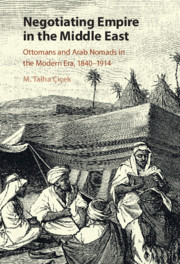Book contents
- Negotiating Empire in the Middle East
- Negotiating Empire in the Middle East
- Copyright page
- Dedication
- Contents
- Figures
- Maps
- Acknowledgements
- Note to the Reader
- Abbreviations
- Introduction
- 1 Conflict
- 2 Reinforcement
- 3 Expansion, Reaction and Reconciliation I
- 4 Expansion, Reaction and Reconciliation II
- 5 Partnership, Provincialization and Conflict
- 6 Taxation
- 7 Justice
- Conclusions
- Bibliography
- Index
Conclusions
Published online by Cambridge University Press: 08 July 2021
- Negotiating Empire in the Middle East
- Negotiating Empire in the Middle East
- Copyright page
- Dedication
- Contents
- Figures
- Maps
- Acknowledgements
- Note to the Reader
- Abbreviations
- Introduction
- 1 Conflict
- 2 Reinforcement
- 3 Expansion, Reaction and Reconciliation I
- 4 Expansion, Reaction and Reconciliation II
- 5 Partnership, Provincialization and Conflict
- 6 Taxation
- 7 Justice
- Conclusions
- Bibliography
- Index
Summary
Until recently, the role of the nomads in world history had not been adequately assessed by the majority of historians who put ‘civilization’ or activities of sedentary and urban societies at the centre of their analyses and thus subtly sidelined migrant societies as if they lived in a lesser period of history. The nomads’ significance to history was often considered only in terms of the devastating impact they had on the progress of civilizations such as China, India, Islam and Christianity. Many historians of previous generations exclude the nomads entirely as active agents of history. Even the empires they established were only deemed ‘successful’ inasmuch as they ‘created fluid environments, suitable for travel and trade that allowed the peripheral civilizations to come into contact with one another’1. In such approaches, the nomads could not be regarded as the key players in laying the foundations for the likes of Venetian merchants, Arab mariners, Chinese inventors and European missionaries, all of whom took the limelight rather than the nomads. All such attitudes may be characterized as a version of ‘subtle orientalism’, preventing the nomads from occupying an important place in history.
- Type
- Chapter
- Information
- Negotiating Empire in the Middle EastOttomans and Arab Nomads in the Modern Era, 1840–1914, pp. 257 - 262Publisher: Cambridge University PressPrint publication year: 2021

